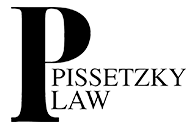WHAT IS THE DIFFERENCE BETWEEN A PRELIMINARY HEARING & A GRAND JURY INDICTMENTS?
Grand Jury and Preliminary hearings play vital roles in our criminal justice system. Though both procedures bring about the same result –formal criminal charges- their procedures are incredibly different. A Preliminary Hearing is an open court proceeding that you have a right to attend with your lawyer. Grand jury is a secret proceeding that neither you nor your lawyer is allowed to attend.
Strangely, few truly understand what these procedures are and what they actually do. Though many believe the police bring charges when they arrest you, that is not the case. Instead, you are not truly charged until a judge finds probable cause at a Preliminary Hearing or a Grand Jury issues a True Bill.
Another thing most do not know is that only the prosecutor can choose whether to have a preliminary hearing or to indict before a Grand Jury. Since the prosecution brings charges against a person, they have the right to decide how to obtain those charges.
What is a Preliminary Hearing?
At a Preliminary Hearing, the prosecution presents evidence, most likely by way of live testimony from one of the arresting officers, with the goal of showing the judge there is “probable cause” that a crime was committed and that the defendant committed it. Probable cause is simply an amount of evidence, far less than proof beyond a reasonable doubt. Because the standard of proof is much lower at a preliminary hearing, the rules of evidence are relaxed. Unlike at a formal trial, the officer can testify about things that he was told by others and did not witness personally. The prosecutor only has to show that a crime might have been committed possibly by you. That a very low burden and relatively easy for the prosecutor to do.
Though it may seem the cards are stacked against you at preliminary hearing, you do have rights. Importantly, after the prosecution asks their questions, your lawyer has the right to cross-examine the officer with the goal of poking holes into the prosecution’s case. Despite your lawyer’s best efforts, nearly every preliminary hearing will end in a judge finding probable cause. Still, the ability to get the officer committed to a story under oath is an incredible asset to use down the road during a potential motion to suppress or trial. A skilled lawyer will know what questions to ask in order to set up a possibility for a future motion to suppress or a trial theory.
If the judge finds probable cause, the state will file an “Information”. The Information is the formal document that officially charges you and outlines the specific criminal statutes you are accused of violating.
Can Charges Be Dropped at a Preliminary Hearing?
In Illinois, preliminary hearings are important proceedings for a criminal case. Typically held at the Circuit Court of the county in which the alleged crime occurred, preliminary hearings provide a space for both sides to discuss their cases and reach any agreements. During this time, prosecutors have the right to drop charges or negotiate with defense attorneys if they choose to do so. Ultimately, it is up to prosecutors to decide if they want to drop a charge before taking it to trial. While some outcomes cannot be predicted, preliminary hearings provide an opportunity for charges to possibly be dropped before the trial begins.
What are Grand Jury Indictments?
The second way of being formally charged with criminal charges is through a Grand Jury. Unlike Preliminary Hearings, Grand Jury proceedings are not conducted in open court. In fact, not even the general public can be present to witness the proceedings. Though you can not be present, you will receive a transcript of the proceedings.
At the Grand Jury proceeding, the prosecutor will present evidence, by way of live testimony, to the Grand Jury. The Grand Jury consists of at least 16 members of the general public who listen to the testimony and can ask questions if they like to determine whether there is probable cause that a crime was committed and that you might have committed it. The prosecution has no obligation to present evidence that is favorable to you and will tend to hurt its case to the Grand Jury. Because the Grand Jury only hears a one-sided presentation of the evidence, it’s often said: “a Grand Jury would indict a ham sandwich.”
Unlike preliminary hearings, a Grand Jury proceeding might involve multiple witnesses that the prosecution subpoenas to come testify. If you receive a Grand Jury Subpoena, you should consult with an attorney before appearing. Barring the ability to assert your 5th Amendment privilege against self-incrimination, you will be compelled to testify. You can only “plead the 5th” if the prosecutor asks you about crimes you committed or assisted in committing.
After the prosecution finishes presenting its witnesses, the Grand Jury deliberates in secret to determine whether there is sufficient evidence. Unlike a formal trial where all members of the jury must agree, only 9 out of the 16 Grand Jury members need to vote in favor of the prosecution. If 9 members do, the Grand Jury will deliver a “true bill” –the legal phrase that means the grand jury finds there is probable cause and an Indictment should be filed. The Indictment is the same filing as an Information -the legal document that formally charges you, detailing the specific criminal statutes you are accused of violating.
An Important Note to Remember
The prosecution gets to choose whether to proceed by Preliminary Hearing or Grand Jury. Because you or your attorney do not have the right to cross-examine at a Grand Jury, the prosecution favors Grand Jury proceedings. Preliminary hearings are practically unheard of in many Counties, as prosecutors favor taking nearly every case to the Grand Jury. While Preliminary Hearings are more common in Cook County, the Cook County States Attorney’s office recently started taking all gun-related cases and most Class X cases to the Grand Jury.
The experienced attorneys at Pissetzky Law LLC have represented countless clients charged by Grand Juries and Preliminary Hearings, and well as clients subpoenaed to appear before a Grand Jury. If you or a loved one are facing serious criminal charges contact them today.


